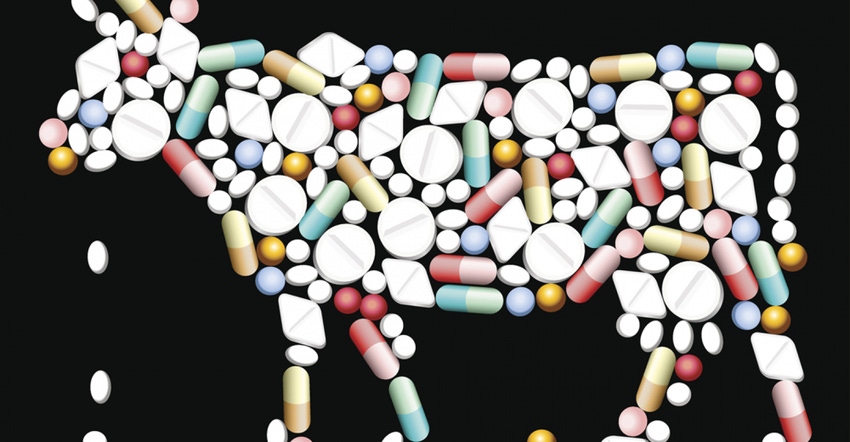Group aims to address concerns about antibiotic resistance
A new collaborative partnership seeks to connect the dots about the health of people, animals and the planet.
November 12, 2019

Antibiotic resistance continues to be a growing concern in our society. Effectiveness of treatment in both humans and animals is critical, if we are to remain healthy as a population. Yet, it seems like animal agriculture takes the brunt of the blame regarding this issue.
“The emergence of bacteria resistant to front-line antibiotics in human medicine has shone a spotlight on antibiotic use in human and veterinary medicine,” says Russ Daly, SDSU Extension Veterinarian and State Public Health Veterinarian. “The issue has been contentious at times, with finger-pointing at livestock uses of antibiotics, typically by those not involved in animal agriculture, as well as at physician prescribing practices, usually by those involved in animal agriculture.”
To highlight this issue, on a recent episode of ABC’s Shark Tank, a former doctor/aspiring entrepreneur pitched his idea for a probiotic product that would reduce the need for antibiotic use in human health care.
Interestingly, pre- and probiotics have been a hot topic in the animal agriculture world, as well. What’s more, our industry is well-versed in explaining how we judiciously use antibiotics to treat an animal’s medical condition by choosing the most appropriate product and administering the correct dose.
Like most complex issues, however, there remain many questions and uncertainties regarding how livestock production may or may not play a role in antimicrobial resistance.
To answer these questions, South Dakota State University Extension is partnering with the Sanford University of South Dakota Medical School, the South Dakota Department of Health, the South Dakota Animal Industry Board and Area Health Education Centers to provide educational opportunities surrounding different topics important to those who live and work in the state and region.
This partnership is called, “South Dakota One Health,” and is a collaborate effort to promote a deeper understanding of the connections between the health of people, animals and the environment.
According to a recent press release from South Dakota One Health, “Educational opportunities include semiannual seminars open to the public and an informational website, www.onehealthsd.org. The seminars choose a One Health topic of interest to South Dakotans and enlist speakers and experts to explore both the human health and animal health aspects of the topic. They bring together people who are involved in human medicine, public heath, veterinary medicine and animal production.
“Antibiotic use in people and animals, along with efforts to preserve the usefulness of these tools, were discussed at the most recent South Dakota One Health seminar held in September in Sioux Falls.
“Attendees at the South Dakota One Health meeting, which were split almost evenly between people involved in animal health and human health, learned that there are many nuances to the uses of antibiotics, whether they’re prescribed for a child in an acute care clinic or for a finisher barn full of hogs.”
Daly added, “The goal of the meeting was for people unfamiliar with antibiotic use and stewardship in either human or veterinary medicine, to learn about the challenges faced by practitioners on the ‘other side of the aisle. Attendees agreed that antibiotics are important tools to preserve for the future, in people and animals alike. Understanding the challenges faced by all who use these tools is the first step in working together toward that goal. One Health efforts such as the South Dakota seminar, are one way to enhance that understanding.”
Another great resource that addresses common questions and concerns about this topic is the American Veterinary Medicine Association (AVMA). On the organization’s website, visitors can find a wealth of information about antimicrobials, animal care and how veterinarians are a trusted leader in this field.
The opinions of Amanda Radke are not necessarily those of beefmagazine.com or Farm Progress.
About the Author(s)
You May Also Like




.png?width=300&auto=webp&quality=80&disable=upscale)
